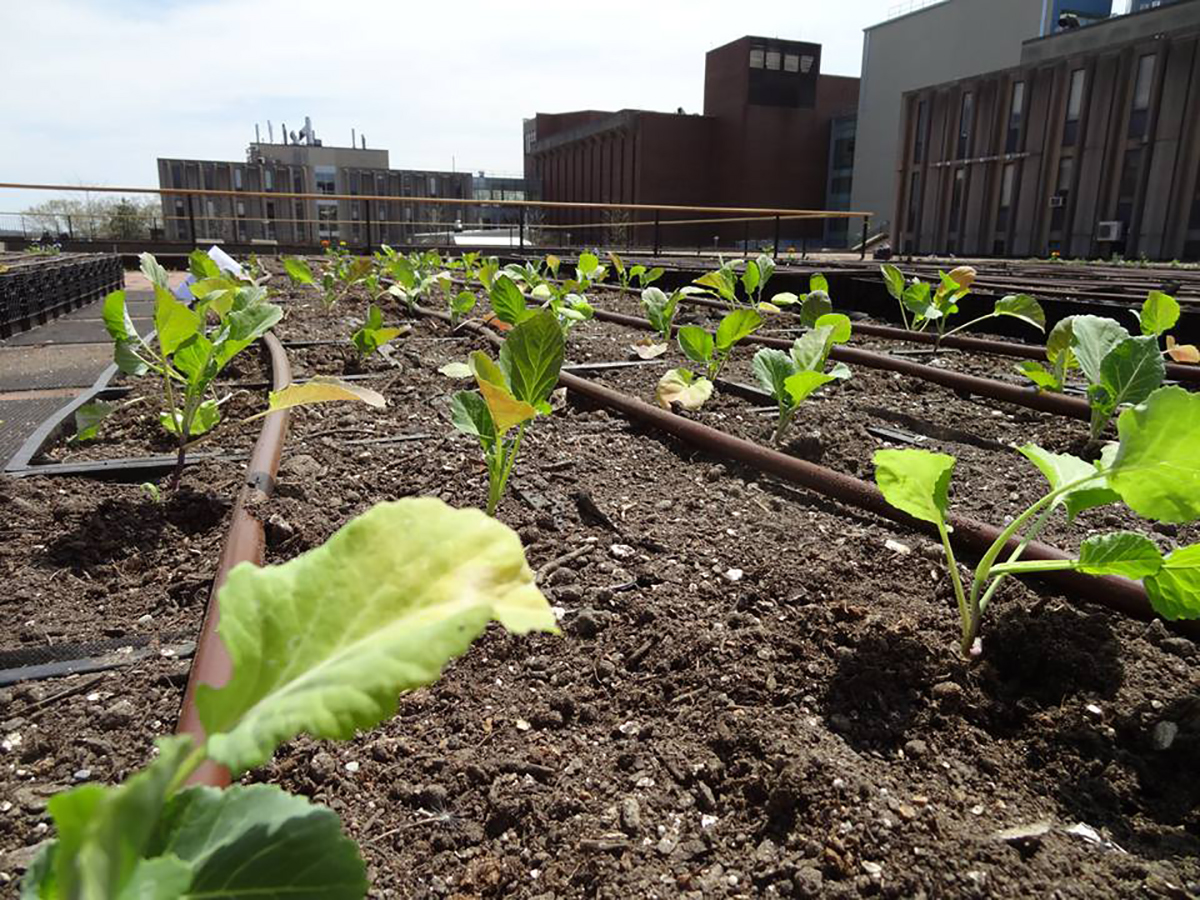A Group of Brandeis Students Started a Rooftop Farm on Campus
For many college students, selecting what to eat is as easy as deciding between pizza or pasta in the dining hall. But a group of Brandeis University students wants their campus to dig deeper.
After taking a course about sustainability and food justice last year, rising juniors Annie Fortnow and Allison Marill—along with five classmates and cofounders—broke ground on a new rooftop farm on top of a science building on campus. “I think the class was really inspirational to us,” Marill says. “We saw how easy it is in our daily lives that we could do a project like this, and I hadn’t thought a lot about that before the class.”
Fortnow and Marill, both environmental studies majors, say their dream for the farm is to improve food access issues in Waltham while teaching Brandeis students about sustainably grown food. “We definitely want to both educate students in the community about local food and reconnecting to where food is from, and then also distributing the food on a large scale to students and outside community members as well,” Fortnow says.
With the help of nearly 100 student and faculty volunteers, planting began in late April and is now 80 percent complete. At 1,500 square feet, the farm is one of the largest rooftop gardens in the Boston area, and one of the only food-producing rooftop gardens on a college campus. Fortnow and Marill estimate that the garden will eventually yield 3,500 pounds of produce to be given to Brandeis students and faculty, Waltham residents, and area food banks and shelters.
Some of the crops will also be sold at an on-campus farmers’ market that was launched by other students in the sustainability class, with whom Fortnow and Marill now partner to maintain the farm and oversee the market. “We had similar goals to create greater access to healthy food on campus and increase the sustainability on campus, so we started a Farmer’s Club,” Marill explains.
The farm came about with help from urban farming group Green City Growers and a $30,000 grant from the school’s Sustainability Fund—money accumulated through a small fee on each student’s tuition and used for campus-approved environmental efforts on campus. Marill says the farm’s central location and close ties to the school will help with the group’s goal of educating students about food production.
“It’s very visible,” she says. “[So] people on a college campus who aren’t that familiar about either growing food or a project like this, they can maybe challenge themselves about the way they perceive growing food.”



